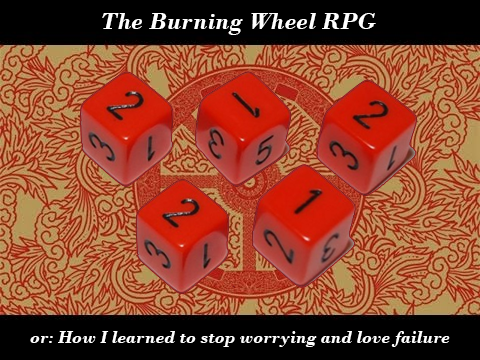Hi all!
Thanks for the terrific replies!
Also, I read through the entire skill list and descriptions last night. As noted, it’s a lot less daunting once you realize you won’t be using most of them if you limit the kind of setting. (Human-centric, for example, as I plan on doing.)
Some of the stress was coming from the folks I’d like to play with this weekend: I’ve only GM’d BW once (The Sword). My fiancé has never RP’d. One guy has done lots of D&D. His wife had her first run at RPing with her husband a few weeks ago on D&D5. So the table culture is going to take some time. (I’ll probably go find a copy of BWG and gift it to the husband. He’ll love it… and there will be two copies on the table.)
Thor, this might be best in a new thread… but I’m fascinated by this from your post:
“In an Earthsea-inspired game that we played forever ago, some of the most frequently tested (and important!) skills were: Blacksmith, Mending, Carpentry, Boatwright, Knots, Rigging, Fishing, Cloth Dyeing, Dye Manufacture, Navigation, Pilot, Spirit Binding, Weaving and Rumor-wise. We chose to make conflicts about those things important through the campaign we established, the characters we created and the beliefs and instincts we selected.”
I’m fascinated by this. While reading the skill-list I realized how mundane so many of the skills in BW are. I also knew that there must be some amazing way to use them… that I frankly wasn’t seeing as clearly as I wanted while reading them.
Could you give me some examples of how you made “conflicts about those things important”? Or perhaps there is a thread at hand?
Thanks so much.
As I side note (for Thor, for Luke, and anyone else who has had a hand in the game): I’ve been picking up BW on and off for about seven years now. I had BWR, bought the supplements, really enjoyed the BITS… but never before saw all the gears of the entire system before as clearly as I’m seeing them now.
(I think the big breakthrough, after hearing about friends complaining about failing in BW all the time) is the realization that failing is part of the implicit ethos of the game. Going for bad odds means handing the GM opportunity to drive you into deeper narrative trouble which is also the source of skill improvement. Of course the characters fail a lot. Because it’s not about stop-in-your-tracks failure, but about the narrative spiraling into worse situations. Which is awesome.)
The whole thing is so smart.
Just wanted to say that.

